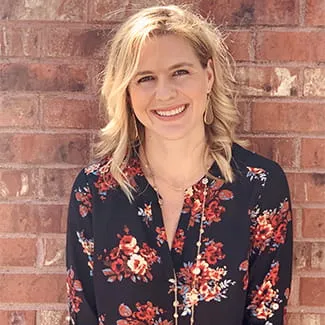April 22, 2020

Struggling Through The Stigma of Getting the Novel Coronavirus and Recovering
We are now several weeks into the reality of COVID-19 being here in Colorado. I knew that working in a hospital setting would increase my chances of getting the virus, so my mind and body had already braced for the likelihood of me possibly getting the virus. But when I actually got COVID-19, to be honest I didn’t totally believe it.
Do I Really Have COVID-19? Reality Sets In
It was early in the pandemic and still for many, including myself, COVID-19 was an overwhelming comic joke, not something to really worry about actually getting, or the impact it would have on the world, my country or me. My symptoms came on suddenly. I simply walked across my house one day and I noticed I had to take a larger then normal breath to get the oxygen my body needed. Worry versus denial set in.
I listened to my body and took the necessary precautions to not infect others. I did not go out even before the stay at home order was in place. I got tested instead of going to work to ensure I did not infect my coworkers or my clients. And yet still, when the call came that my test was positive, a result that I completely expected based on confirmed exposure from work and my mild yet present symptoms, I felt a sense of shame around how I was going to share this news. Who would I let know, who did I have to let know and who would I not tell?
From Embarrassment to Acceptance: The Difficult Decision of Whether to Tell People I Have COVID-19
It was an easy decision to tell my partner, family and coworkers. These are people who I did not feel I could responsibly hold that information from and had already prepared them with knowledge of my symptoms, testing and now the result. The decision of whether to tell others weighed heavy on my mind.

I was already working from home and I wasn’t going to be seeing anybody – so did they really need to know? Strangely, when my partner asked me if he could share it with his immediate family I had conflicting feelings arise. I was grateful he asked me, as it was my personal information to share. My initial response was, “Absolutely! Share it with anybody you need to, it’s not a big deal.” However thoughts started to swarm in my brain on whether I should be embarrassed that I had contracted this virus. The media used the word "infected," an appropriate word and yet it made me feel dirty hearing it over and over.
I was brought into group conversations with friends wishing each other safety and health and in those conversations I wanted to share it with them and yet had a sense of fear of their reaction that I was not healthy and how it would shift the dynamics of our friendships. I didn’t want our conversations to be not about wishing each other health and safety or shift the focus to only be about me when this is challenging to everyone regardless of contracting it. These moments left me quiet for a time and contributing the same well wishes like everyone else without disclosure.
I endured social media’s memes of people’s reactions when they discovered someone had COVID-19 and the face of shock and disgust. Yes, only a meme and I was guilty of sharing them also, but enduring that for days on end was exhausting mentally, on top of the fatigue and shortness of breath I was already experiencing physically. Eventually, the emotional fatigue became too much.
Why I Didn't Keep My COVID-19 A Secret
As I sat in quarantine, with lots of time to think, I explored internally what the point of not sharing it was for me and I realized there was no point in keeping it a secret. When I started to share it with people who I knew would be supportive, it felt good to answer their questions, inform them and share compassion with them. As I shared my positive test result, I found a need to make sure the person I was sharing it with knew where I contracted COVID-19 from – that I wasn’t being reckless or irresponsible, and to ensure people that I was doing my part as asked by society.
It soon became clear to me that I was still working through some shame associated with having COVID-19, even if I was willing to share it with anyone.
No Shame in Sharing: I Have COVID-19
As time has passed, and the reality of the virus is more prevalent I have now become more and more open, which has been freeing. I know the value of sharing this outweighs keeping it to myself. It educates and changes perspectives of people’s actions and allows for dialogue. Being willing to share, regardless of how you will be perceived allows freedom from the judgmental and shaming feelings that have no place in healing and moving forward safely in this pandemic.
Britt Whitelaw, LCSW, is a primary therapist in Denver Health's Substance Abuse Treatment, Education and Prevention (STEP) Program, which supports clients up to the age of 21. She is now working from home as part of her continued recovery from COVID-19.
Stay up to date on the latest information about the novel coronavirus and Denver Health's response at DenverHealth.org/coronavirus.

